Photo: Jo-Anne McArthur / We Animals Media
On factory farms, efficiency and profits are consistently prioritized over animals’ innate needs. Nearly every component of their lives — including what they eat, drink, see, and do — is controlled. These animals are treated like commodities rather than sentient beings. Fortunately, there is unprecedented momentum to end at least one of these heinous practices: the confinement of pigs to gestation crates.
What are Gestation Crates?
Of all the animals suffering on factory farms, few are as unfortunate as sows (female pigs) confined to gestation crates.
Gestation crates are essentially cages where most pregnant sows are kept during their gestation (pregnancy) periods. In sharp contrast to the lengths taken by humans to keep pregnant women comfortable during pregnancies, gestation crates are akin to torture.
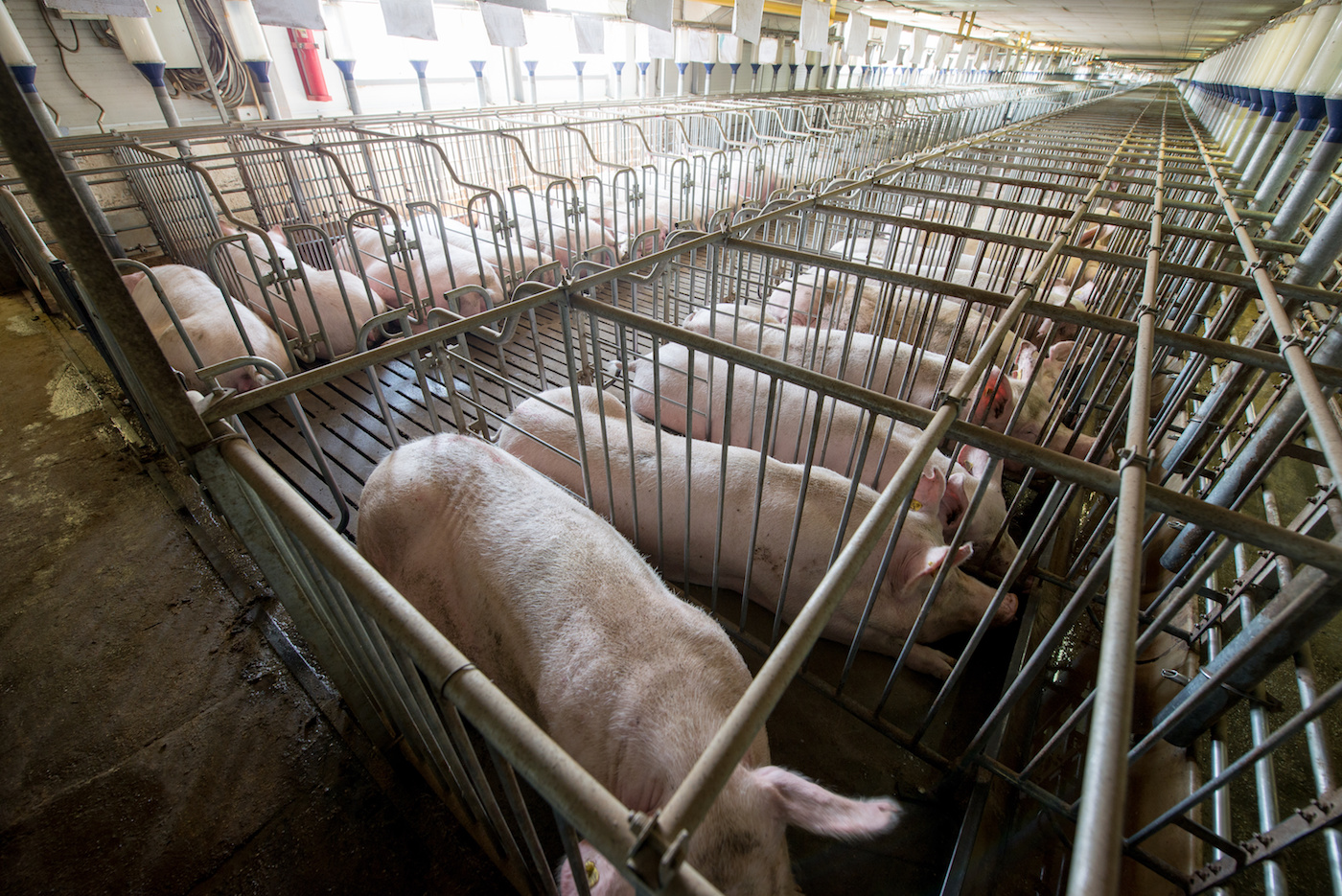
The typical gestation crate measures roughly 6.6ft x 2ft — only marginally larger than the mother pig herself. This space is so small that sows in gestation crates cannot even turn around, stretch their limbs, or take a single step let alone move freely. In gestation crates, they are deprived of any mental stimulation, enrichment, or social interaction. They experience profound suffering and trauma.
It is common for a pregnant sow to spend nearly her entire gestation period (around 16 weeks) confined to a gestation crate. Shortly after giving birth, she will once again be inseminated and returned to the crate — a brutal cycle that continues until it is time for her slaughter.
Unsurprisingly, the unnatural, dirty, and highly restrictive nature of gestation crates often causes sows to become seriously ill. For example, since they are only able to relieve themselves through slats in the back of their crates, confined sows will spend 24 hours a day inhaling ammonia fumes from “cesspits” of their own (and others’) excrement, leading to significant respiratory disorders. Other injuries such as lameness and abrasion wounds occur since the rigid confines of the metal crate prohibit sows from natural movement.
In addition to physical pain and disorders, sows in gestation crates frequently exhibit signs of extreme distress and emotional trauma. Stripped of their most basic physical and social needs, they show signs of intense suffering and desperation through abnormal behaviors and neurotic coping mechanisms such as biting the metal bars on their crates. These examples are only a fraction of the awful outcomes that arise from this practice.
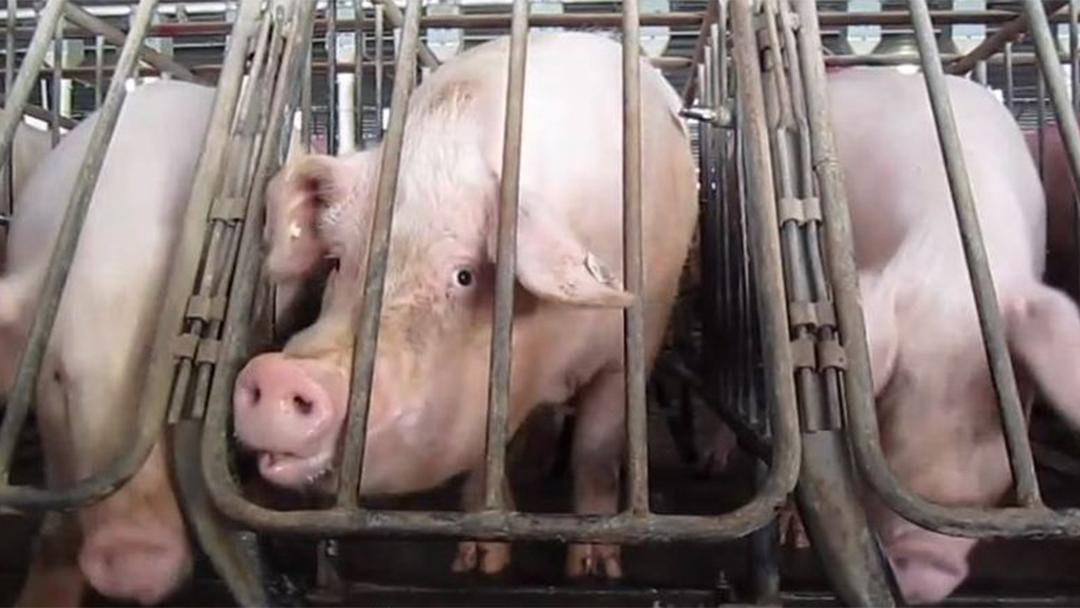
HSUS/Creative Commons
Pigs are Intelligent, Feeling Beings
This is all despite the reality that pigs are highly intelligent beings with complex social and emotional needs. A 2015 study by the International Journal of Comparative Psychology found many signs of highly sophisticated thinking in pigs, including “comprehension of symbolism,” “numerical understanding,” and a “personality structure” that compares to “other species, including humans.” With this knowledge, it is not surprising that some experts consider pigs to be more easily trainable than cats and dogs. By any estimation, pigs are among the most intelligent animals on the planet.
What is Being Done?
It is cruel to subject any animal to the conditions on factory farms, but the placement of a deeply intelligent species in such harsh confines is a uniquely awful situation. There is one silver lining to this cruelty: it is driving much-needed action from institutions that have historically ignored suffering on factory farms. For once, momentum is on the side of the pigs.
State Legislation
Ten states have banned outright the use of gestation crates in pork production. This includes California, where Prop 12 goes a step beyond other states’ bans in setting new standards for more humane farm animal confinement. Rather than banning these practices in California alone, Prop 12 also bans the purchase of eggs, veal, and pork from any animal subjected to cruel confinement, regardless of whether the animal was raised in California. Although this policy may seem radical, the fact that it has been passed in California — a state with the world’s fifth-largest economy and a population over 39 million — confirms that this level of much-needed action is possible anywhere. Massachusetts’ anti confinement bill, passed overwhelming in 2016, also follows the same model as California.
Currently, a bill to ban gestation crates in New Jersey has unanimously passed in committee and is just waiting to be called for a vote on the main floors of the NJ State Assembly and Senate. If your state has not yet banned gestation crates (and other forms of cruel confinement), contact your legislators and urge them to support similar legislation. Internet searches and contacting local animal welfare organizations can be a helpful way to learn of what local legislation needs your support.
Federal Legislation
Regardless of how one’s state is addressing the cruel confinement of farmed animals, all Americans should support legislation at the federal level to curtail concentrated animal feeding operations. Although large scale national legislation specifically banning gestation crates (and other cruel methods of confinement) hasn’t yet happened in the U.S., is neither radical nor unprecedented in other countries. This year, the European Union announced that the use of cages in animal agriculture would be phased out by 2027. This policy was met with overwhelming support from politicians and citizens alike; the European Parliament voted 558-37 in favor of the proposal and over 1.4 million citizens signed a petition in support.
However in the U.S., most animal welfare laws are legislated on the state level. Although there are no federal laws protecting animals on farms, two federal laws cover farmed animals during transport and slaughter. Tragically, these two laws exempt all poultry species, which make up 95% of land animals killed for food.
Transport
The 28-Hour Law requires animals transported across state lines for slaughter— by means other than water or air—to be unloaded every 28 hours for rest, food and water. Unfortunately, this law is weakened by loopholes, lack of enforcement and low fines.
Slaughter
The Humane Methods of Livestock Slaughter Act requires that livestock be quickly rendered insensible to pain before being slaughtered. But the U.S. Department of Agriculture (USDA) has taken steps to reduce regulatory oversight of this. In 2019, a Trump administration rule change allowed pork plants to slaughter as fast as they wanted as long as they prevented fecal contamination and minimized bacteria. Speeding up line speeds (the pace at which animals are killed in slaughter houses) has been shown to make it difficult for workers to ensure that animals are effectively stunned before slaughter, which is contrary to the intent of the Humane Slaughter Act.
Fortunately, a lawsuit brought against the USDA by the United Food and Commercial Workers Union successfully challenged the rule change, arguing that faster slaughter speeds undermined worker safety and a federal court invalidated the rule. Currently, the New Swine Slaughter Inspection System (NSIS) imposes a a maximum line speed of 1,106 pigs per hour.
Farm System Reform Act
Things may be about to change! Fortunately, new legislation exists — now it just needs our support. In 2019, Rep. Ro Khanna and Sen. Cory Booker proposed the Farm System Reform Act (FSRA). If passed, the FSRA would facilitate an eventual phaseout of Confined Animal Feeding Operations (CAFOs, colloquially known as “factory farms”) and take critical steps to prohibit cruel practices in animal agriculture — including the use of gestation crates. According to the Animal Welfare Institute, the bill would ultimately “[incentivize] the transition to either crop production or higher-welfare farming, and shifting power from multinational corporations to small- and mid-sized family farms.”
For all animals suffering on factory farms — as well as for our public health and planet — passing the FSRA must be a top priority. Please contact your federal legislators and show your support of these bills in the house and senate.
Ethical Supply Chains in the Food Industry
The food industry is uniquely positioned to affect the demand for any given animal product. Fortunately, many restaurant and grocery chains have begun taking tangible steps to require their pork suppliers to transition away from gestation crates.
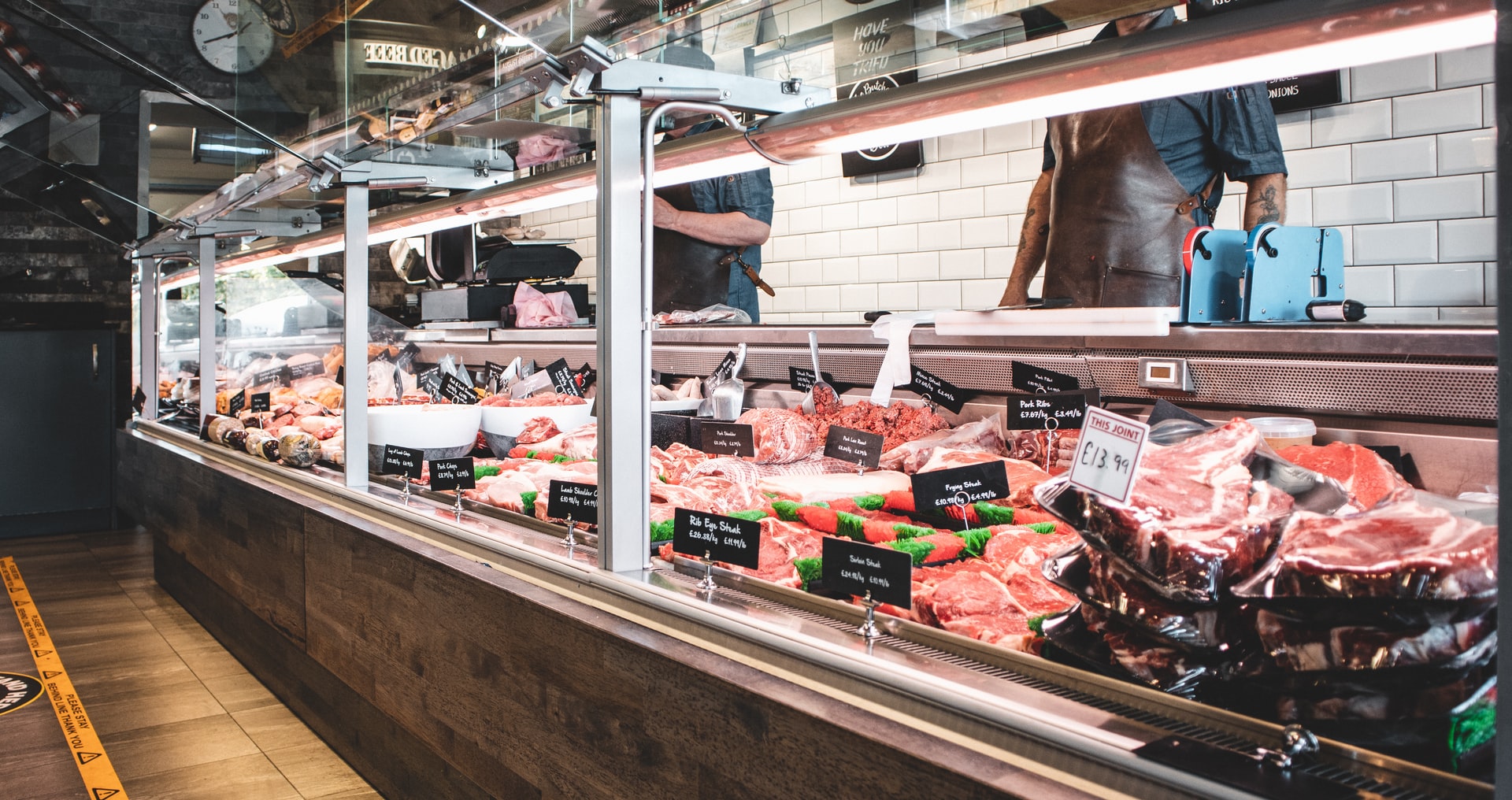
Photo by Kyle Mackie on Unsplash
For example, most major grocers — including Costco, Safeway, Walmart, Target, Kroger, and Trader Joe’s — have committed to plans that require their suppliers to to transition from gestation crate to open pen systems or group housing. Crate Free USA is particularly proud of our role in facilitating Trader Joe’s progress on this issue. In 2018, a group of CFUSA volunteers traveled to the Trader Joe’s headquarters to meet with company officials and deliver a petition with over 370,000 signatures asking the grocer to go 100% gestation crate-free. Following the meeting, Following the meeting, Trader Joe’s announced a significant phase-in of more crate-free products within a specific timeframe.
Now, our attention is on Aldi. On pace to be the third largest grocery store chain in the United States, Aldi is a unique exception among major grocers for having no plans to eliminate gestation crates from their pork supply chain. Aldi claims that they are “committed to the well-being of animals in our supply chain.” So long as Aldi continues to source pork from suppliers that use gestation crates, this claim cannot be taken seriously.
What Can You Do?
Vote with your dollars. And make your voice heard as a consumer.
Aldi has an opportunity to prove that they are serious about their commitment to animal welfare by committing to a 100% gestation crate free supply chain, as so many other major grocers have done. Crate Free USA’s petition to Aldi currently has over 350,000 signatures – please help mother pigs by adding yours.
In addition to signing the petition, please consider contacting Aldi through CFUSA’s campaign on the Hidden Cost of Aldi Pork and sign up to become a Pig Protector by helping us with easy actions to tell Aldi how you feel.
Even in the cruel world of factory farming, confining pregnant pigs to gestation crates stands out as a uniquely horrific practice. Fortunately, there are clear opportunities for progress in the immediate future.
Still, it is important to remember crate-free does not mean cruelty-free even if pigs in gestation crates are moved to group housing, they will never see the daylight or experience the outdoors, and are still likely to endure other forms of abuse common on factory farms.
For this reason, we should all take some of these steps:
- Stop eating pork
- Reduce pork consumption
- Only shop at retailers with clear policies on crates
- Only buy pork from farmers with naturally, more humanely raised pigs
Download the Crate Free USA Mobile App for details on where to find these products in Illinois.
Ultimately, regardless of what you choose to eat, please consider taking any of the actions described above to join the critical and timely fight against gestation crates.
Author
Jake Stein lives in Chicago where he works as a human capital consultant. He recently graduated from Northwestern University where he studied organizational change and statistics. He is passionate about reducing the suffering of animals on factory farms and raising awareness of how the meat industry drives serious environmental and public health issues. In his free time he enjoys running, cheering for Wisconsin sports teams, and trying his hand at plant-based recipes.
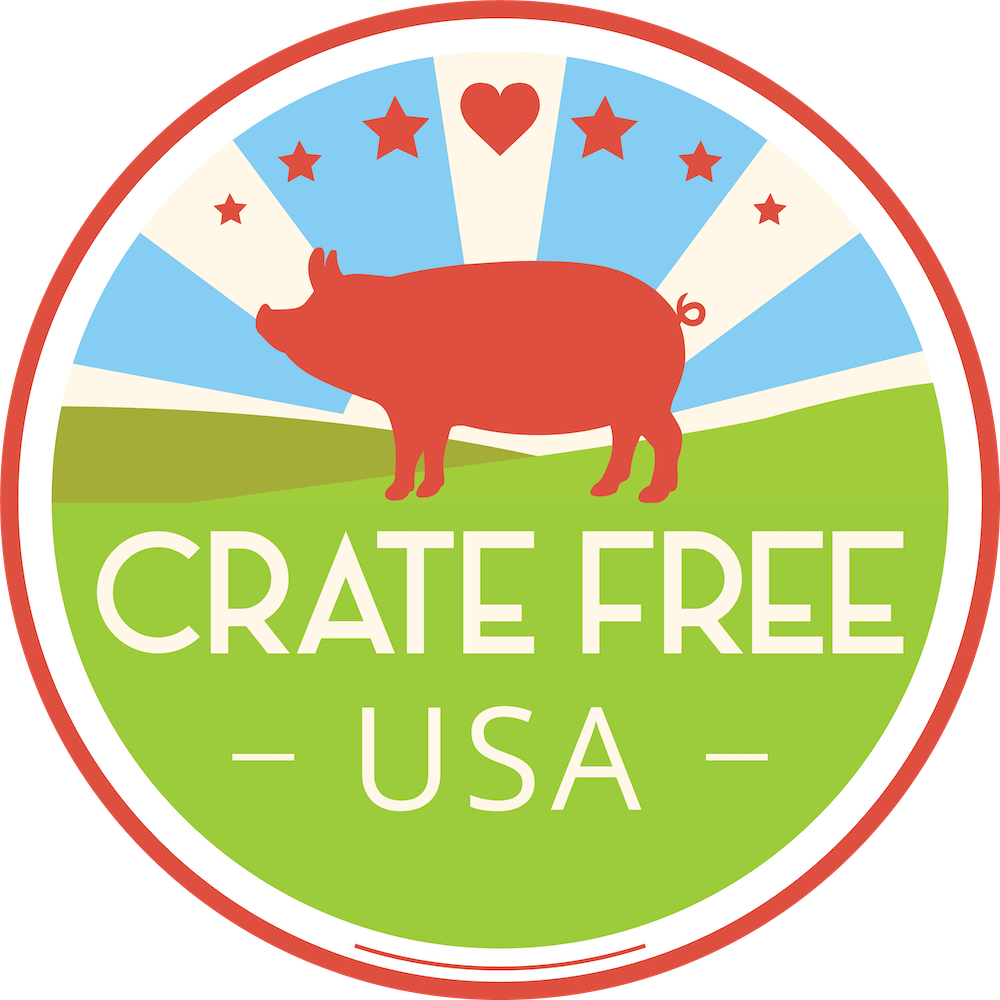
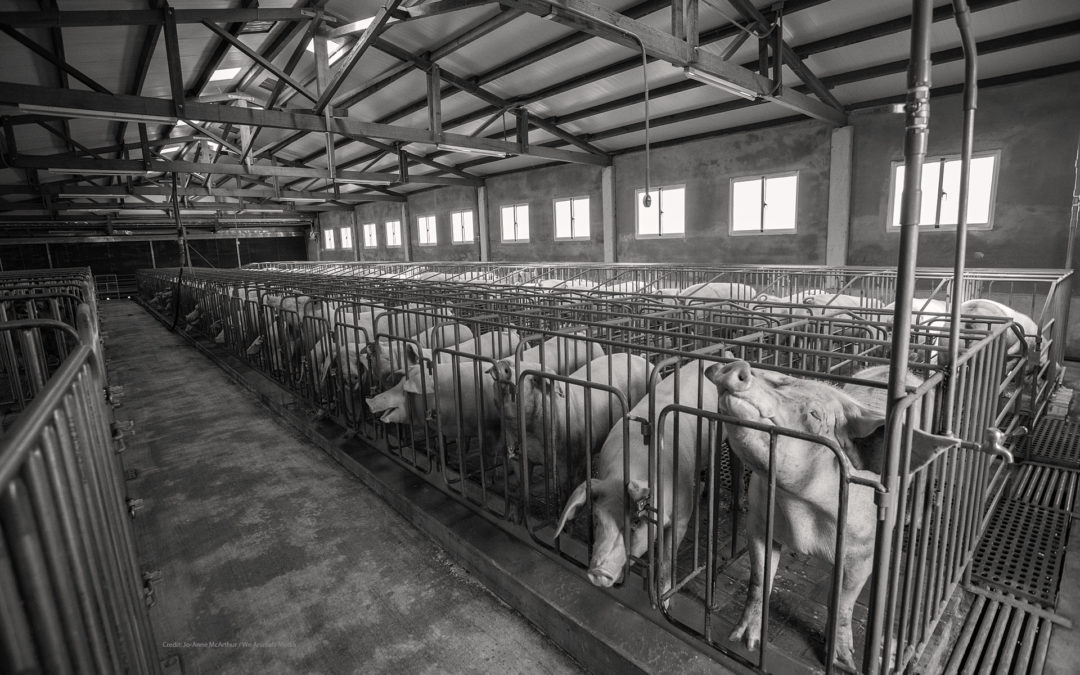
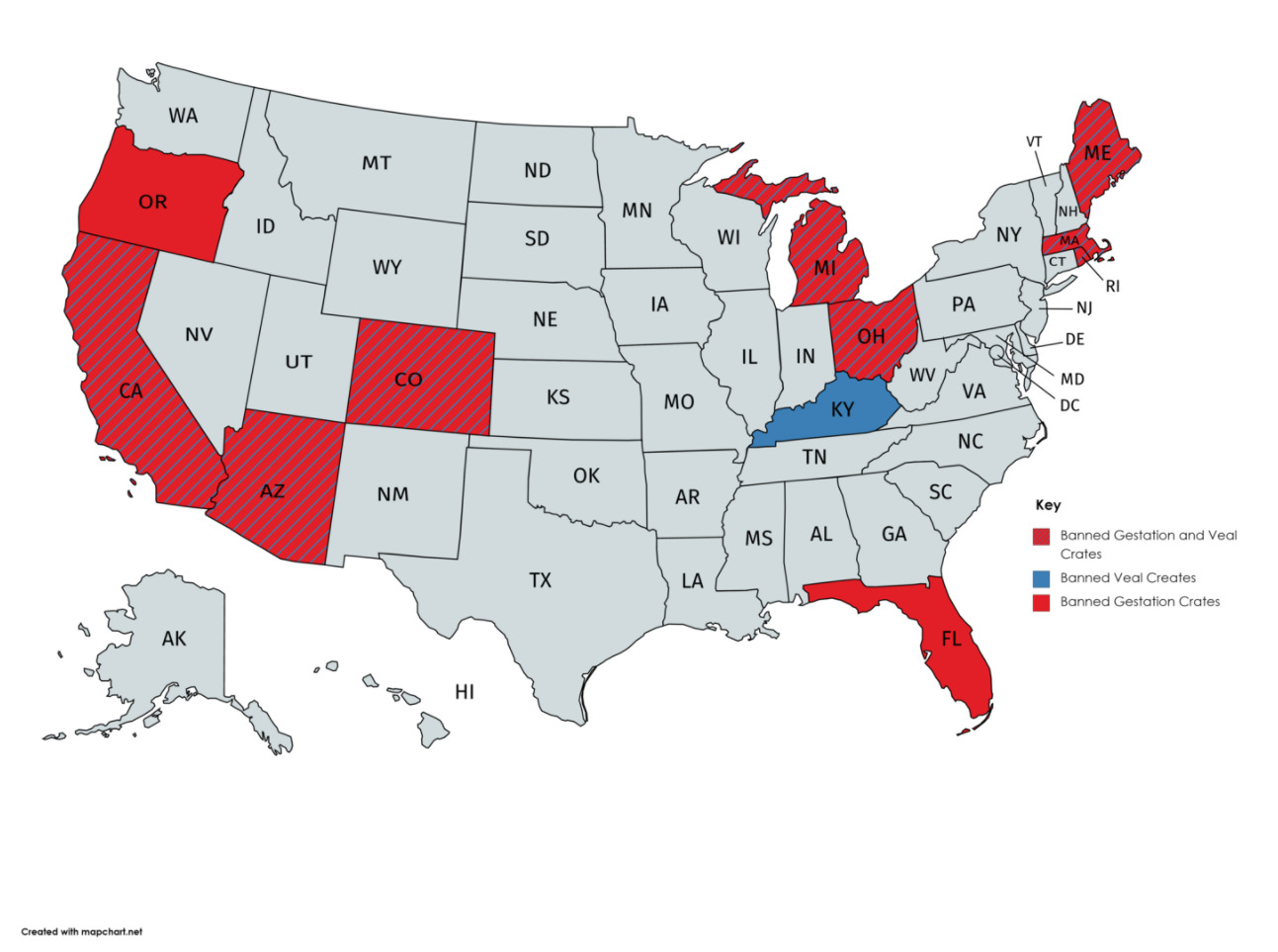
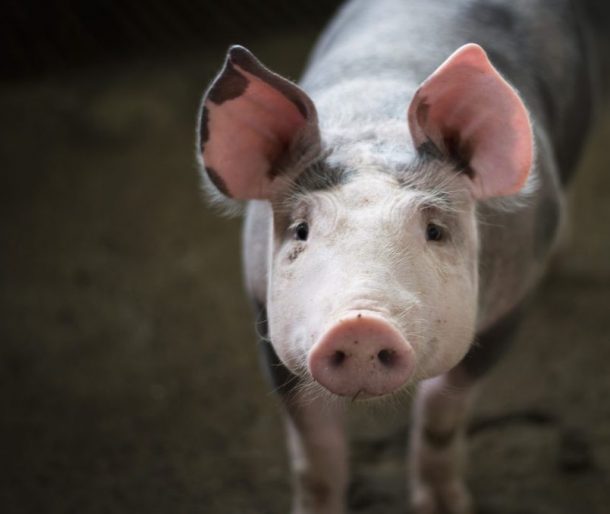
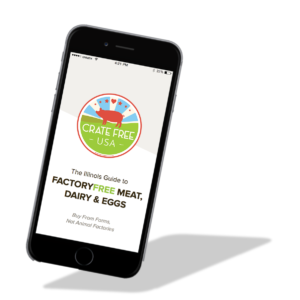
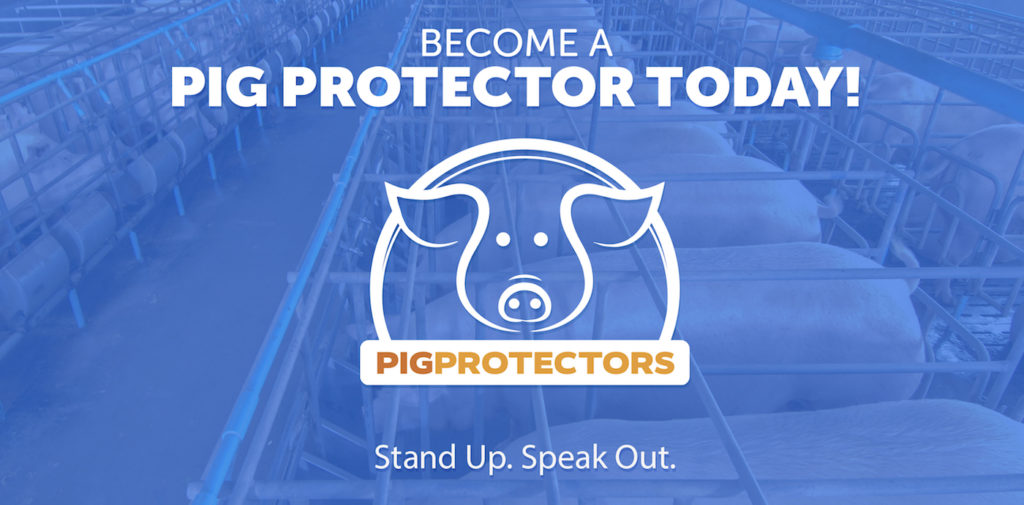
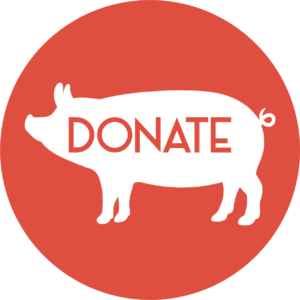
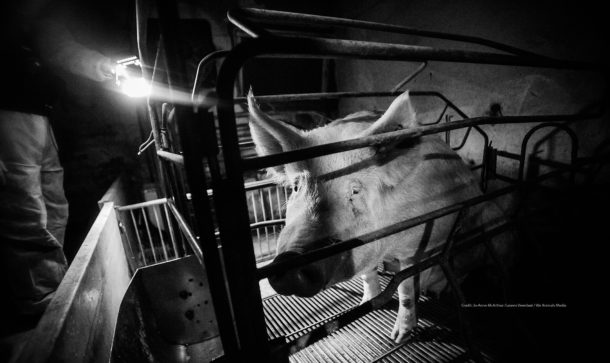
This is totally and utterly barbaric. How any desent human being can work in this cruel environment is beyond me. All caged farm animals need to be set free